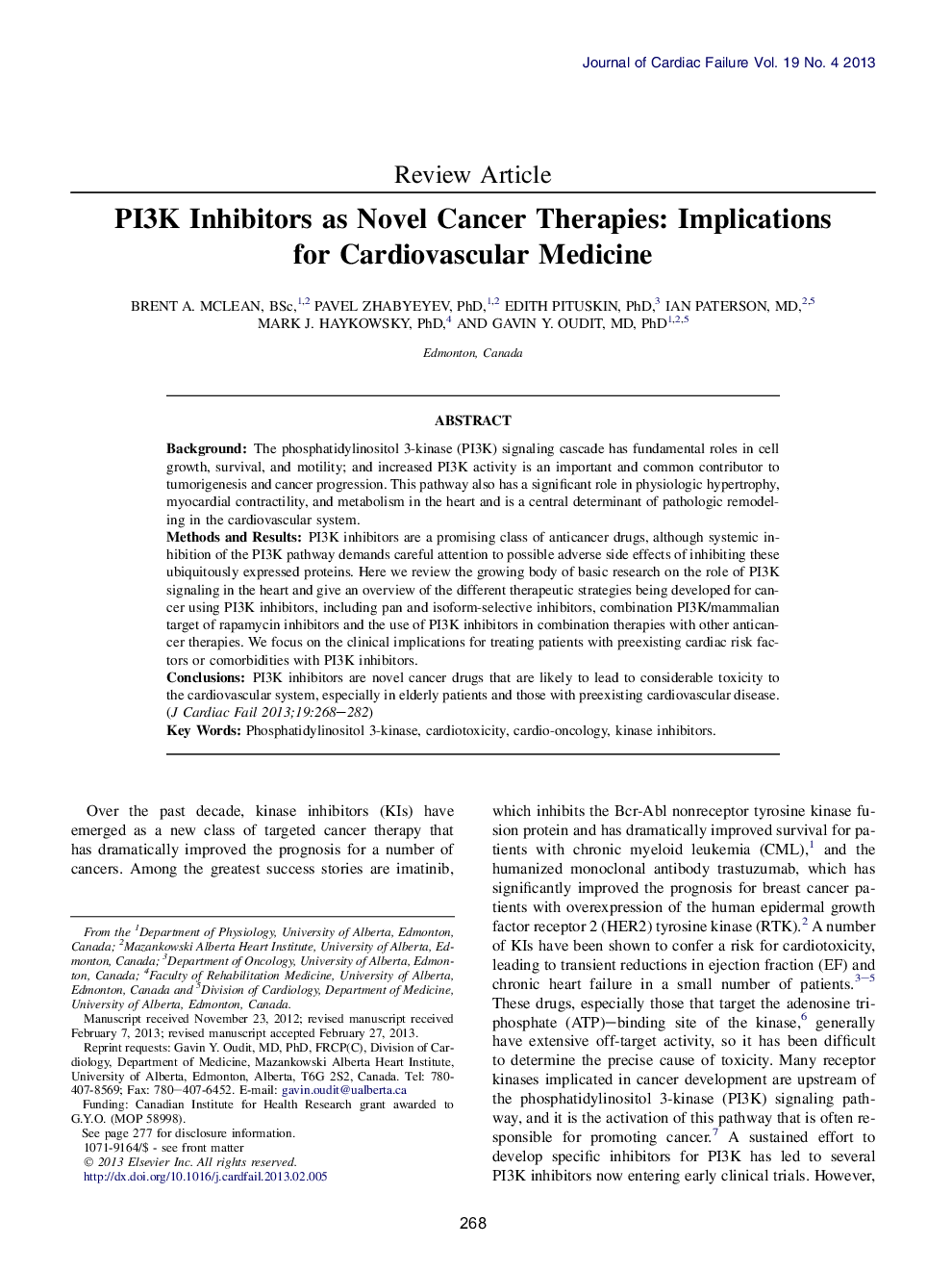| Article ID | Journal | Published Year | Pages | File Type |
|---|---|---|---|---|
| 2959239 | Journal of Cardiac Failure | 2013 | 15 Pages |
BackgroundThe phosphatidylinositol 3-kinase (PI3K) signaling cascade has fundamental roles in cell growth, survival, and motility; and increased PI3K activity is an important and common contributor to tumorigenesis and cancer progression. This pathway also has a significant role in physiologic hypertrophy, myocardial contractility, and metabolism in the heart and is a central determinant of pathologic remodeling in the cardiovascular system.Methods and ResultsPI3K inhibitors are a promising class of anticancer drugs, although systemic inhibition of the PI3K pathway demands careful attention to possible adverse side effects of inhibiting these ubiquitously expressed proteins. Here we review the growing body of basic research on the role of PI3K signaling in the heart and give an overview of the different therapeutic strategies being developed for cancer using PI3K inhibitors, including pan and isoform-selective inhibitors, combination PI3K/mammalian target of rapamycin inhibitors and the use of PI3K inhibitors in combination therapies with other anticancer therapies. We focus on the clinical implications for treating patients with preexisting cardiac risk factors or comorbidities with PI3K inhibitors.ConclusionsPI3K inhibitors are novel cancer drugs that are likely to lead to considerable toxicity to the cardiovascular system, especially in elderly patients and those with preexisting cardiovascular disease.
